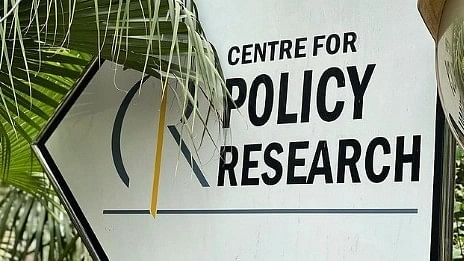
Credit: cpr_india/Instagram
The cancellation of the FCRA (Foreign Contribution Regulation Act) licence of the Centre for Policy Research (CPR), one of the country’s leading and distinguished think-tanks, has dealt a near-fatal blow to the organisation. It has been involved in public policy research and advocacy and has made important contributions in those areas. The 50-year-old organisation has been the target of hostile government actions for a long time. Its offices were raided in September 2022 by the Income Tax Department. The FCRA licence, which enables an organisation to receive donations from abroad, was suspended in February 2023 and its tax exemption status was cancelled in June 2023. The CPR has approached the court for relief and remedy, but it is clear that the government is determined to ensure that the organisation shuts down. Choking off finances is the surest way to do that.
The action was taken allegedly because the CPR used foreign contributions for “undesirable purposes”, transferred them to other entities, and published news articles in violation of the FCRA Act. The order says the CPR published “reports on current affairs programmes”. The organisation has denied the charges and has said that “the publication on its website of policy reports emanating from our research” has been “equated with current affairs programming”. It is clear that the government was looking for excuses to make a case and take action. There have also been reports linking the government’s action to the CPR’s support for an environmentalist who helped villagers to protest against an Adani-operated mine in a forest in Central India. The CPR has denied funding the environmentalist but has said that it was involved in a research project on the violation of environmental laws in the area.
The CPR has done important work in creating a better understanding of issues and helping to formulate public policy, including on crucial national security areas such as nuclear policy. Informed discussions and debates on issues is essential for decision-making and raising the level of public awareness in a democratic society. Organisations like the CPR are needed to create an ecosystem in which the government, experts outside the government system, and the public are partners in policy-making and opinion-building. They strengthen the linkages between the government and civil society and deepen democratic engagement. But governments have not always been kind to them and the present government has been particularly harsh with them. The FCRA licences of thousands of NGOs have been cancelled in the last many years. The government’s actions against them are intended to reduce the room for civil society and to deny space to anyone other than itself, and are a refusal to listen to other voices and views. The hounding of CPR does not show the government’s democratic credentials in good light, especially as it is seen to be going to such lengths on behalf of the mining industry in general, and a favoured business house in particular.